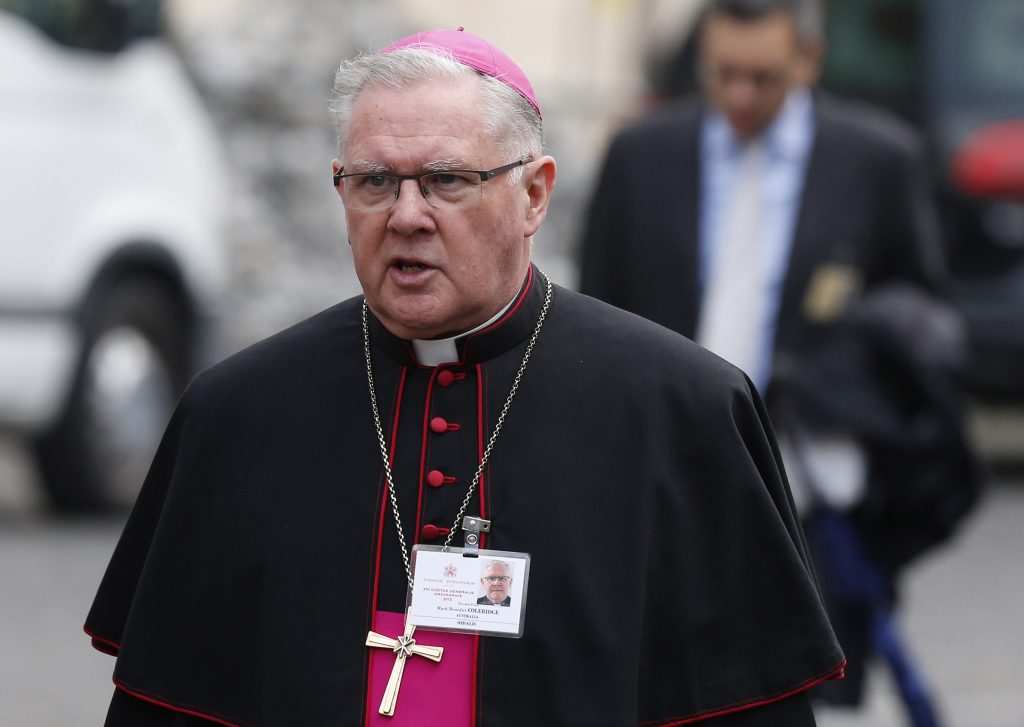In a much-anticipated response to Australia’s Royal Commission into Institutional Responses to Child Sexual Abuse, the Australian Catholic Church has announced it will comply with 98 percent of the Commission’s recommendations - however it adamantly rejected the Commission’s call to remove the seal of the confessional.
The bishops indicated reserved willingness to change the Church’s requirement of priestly celibacy, and expressed a willingness to amend canon law to remove the requirement for destroying documents after a cleric has died or following ten years after a sentencing.
The 57-page report, released on Friday by the Australian Catholic Bishops Conference (ACBC) and the Catholic Religious Australia (CRA), said the work of the Royal Commission provided a service to both the church and the country. The report went on to note that the response was in the spirit of Pope Francis’s recent letter to the People of God in which he admitted to the Church’s grave failings on the protection of minors and its cover-up and pledged global reform.
“The Pope’s recent Letter to the People of God makes clear that the Church’s response at the highest level begins with the acknowledgement of grave sin and failure by bishops and religious leaders and a culture of clericalism,” wrote Archbishop Mark Coleridge, president of the ACBC and Sister Monica Cavanagh, president of the CRA.
“Our response in Australia gives local shape to the action required to address such failure and the need for cultural change,” they continued.
Both Coleridge and Cavanagh unveiled the Church’s report during a press conference held on Friday in Sydney.
The Royal Commission issued 189 recommendations, 80 of which were specific to the Catholic Church.
The Australian Church responded to those recommendations made by the commission, and each of them was either “Accepted,” “Not accepted,” or “Noted, ACBC has informed the Holy See.”
The report detailed each recommendation, describing the suggestion and the action being taken by the ACBC.
On the issues of removing the seal of the confessional, the report labeled the suggestion as “inimical to religious liberty,” not just for the Catholic Church but for other religions as well.
The Church went on to pledge, however, that the confessional would be a safe place for minors and that it would provide enhanced education for confessors and seminarians on the practice.
“Children will be less rather than more safe if mandatory reporting of confessions were required: The rare instance where a perpetrator or victim might have raised this in Confession would be less likely to occur if confidence in the sacramental seal were undermined; and so an opportunity would be lost to encourage a perpetrator to self-report to civil authorities or victims to seek safety,” argued the report.
As for priestly celibacy, the Church agreed to, in consultation with the Holy See, examine its requirements for mandatory celibacy in accordance to Canon Law and theological advisors.
The report noted, however, that “the Royal Commission made no finding of a causal connection between celibacy and child sexual abuse,” though it added that “voluntary celibacy is a long- established and positive practice of the Church in both East and West, particularly for bishops and religious life.”
“Inadequate initial and continuing formation of priests and religious for celibate living may have contributed to a heightened risk of child sexual abuse, but not celibacy as a state of life in and of itself,” it continued.
Among other consequential changes, the Church agreed that in consultation with the Holy See, it would be amendable to updating the canon law requirement that “documents relating to canonical criminal cases in matters of morals” not be destroyed following the death of the cleric or following ten years of completing the corresponding sentence so that civil claims could proceed forward.
The ACBC said that, in consultation with the Holy See, it would sill prepare guidelines for ordering and maintaining documents, for a minimum of 50 years
The report presented by the Australian bishops’ conference on Friday is a response to one released by the Australian Royal Commission into Institutional Responses to Child Sexual Abuse from December 15, 2017, which first found serious failings in the protection of children from abuse in the Catholic Church and other major secular and religious institutions.
The original document was the result of an inquiry into institutional responses to child abuse that was established in January 2013.
“The publication of this document, together with the final report of the Truth Justice and Healing Council (TJHC), marks for the Catholic Church in this country a most significant step in a journey which will continue far into the future,” says the report, signed both by the Australian bishops and the religious orders.
Though according to the signatories the process of addressing the crisis began before the Royal Commission, the last years “focused powerfully and painfully on the suffering of those abused, on the Church’s failure to address their suffering, the challenge this presents, and what is required if we are to ensure justice and compassion for those who have been abused, and a safer Church for all now and in the years ahead.”
The Australian report comes just days after Pope Francis returned from his August 25-26 trip to Ireland where he apologized for the Church’s crimes and failures in protecting children from clerical sexual abuse and other crimes, but refrained from providing a new policy as to how the Church is going to address bishop accountability.
The Church’s response to sexual abuse is under a global spotlight, perhaps now more than ever, with a former papal ambassador to the United States saying that he had given information to Francis against former Cardinal Theodore McCarrick from the United States regarding his alleged history of abuse, but that he had failed to act on it.
It is also just weeks since a Pennsylvania Grand Jury report found 300 priests had abused over 1,000 children in a span of seven decades in six different dioceses in the state.

